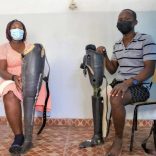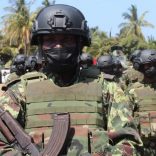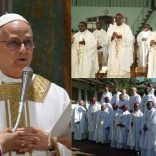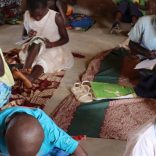Mozambique: About 3.4M children need aid - Unicef
Mozambique Elections: NGO welcomes court ruling that prohibits internet blocking

FILE - For illustration purposes only [File photo: DW]
Mozambican non-governmental organization the Centre for Democracy and Human Rights (CDD) has welcomed the ruling by the Judicial Court of the City of Maputo (TJCM) prohibiting telecommunications operators from blocking internet access.
“On Tuesday, the Judicial Court of the City of Maputo notified the Centre for Democracy and Human Rights of a ruling that prohibits mobile phone operators from blocking internet access. This is an unprecedented decision by a justice system that has accustomed us to cherishing and supporting the regime’s illegalities,” reads an article by the CDD published yesterday.
For the CDD, the blocking of the internet from October 24 to November 5 was an “unacceptable act of repression” intended to “prevent demonstrations and the circulation of information about police repression”.
“More than a judicial victory, the TJCM decision represents an important step in the revitalization of human rights and fundamental rights in a State that systematically threatens democratic freedoms,” the CDD reiterates.
For the NGO, the ruling recognizes access to the internet as a “fundamental right of the Mozambican people”.
“This ruling shows that the Mozambican people are aware and will no longer tolerate attacks on their fundamental rights. The internet is the backbone of modern communication, access to information, education and the economy,” it adds.
According to the CDD, the ruling is the result of an injunction filed by the CDD and othjer civil society organizations the Public Integrity Centre (CIP) and the Civil Society Learning and Training Centre (CESC) against private telecom operators Movite and Vodacom and state-owned Moçambique Telecom (Tmcel).
“Following this decision, civil society will file a main action to hold the State accountable and seek compensation for the victims of the internet blockade,” the NGO concludes.
In November, the Mozambican Minister of Transport and Communications said that the restrictions on the internet, especially on social media, were the result of the operators’ own actions, so that the network would not be used to “destroy” the country, in the context of the post-election demonstrations.
“It is a combination of many factors. The destruction of infrastructure, but also the security of the operators themselves, who have to work in a secure environment. Also the civil liability of the operators, I can say, when they see that the Internet is being used to destroy the country,” said Minister Mateus Magala.
“Certainly they would have taken measures to ensure that the Internet stayed a collective good, not an evil used to destroy our country,” he added.













Leave a Reply
Be the First to Comment!
You must be logged in to post a comment.
You must be logged in to post a comment.